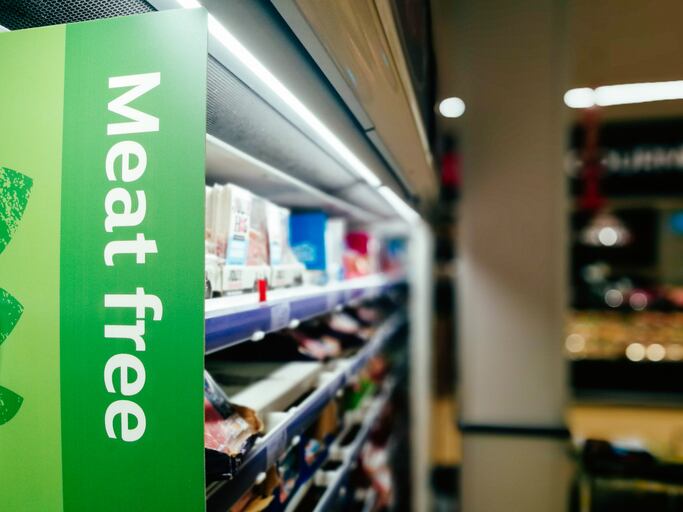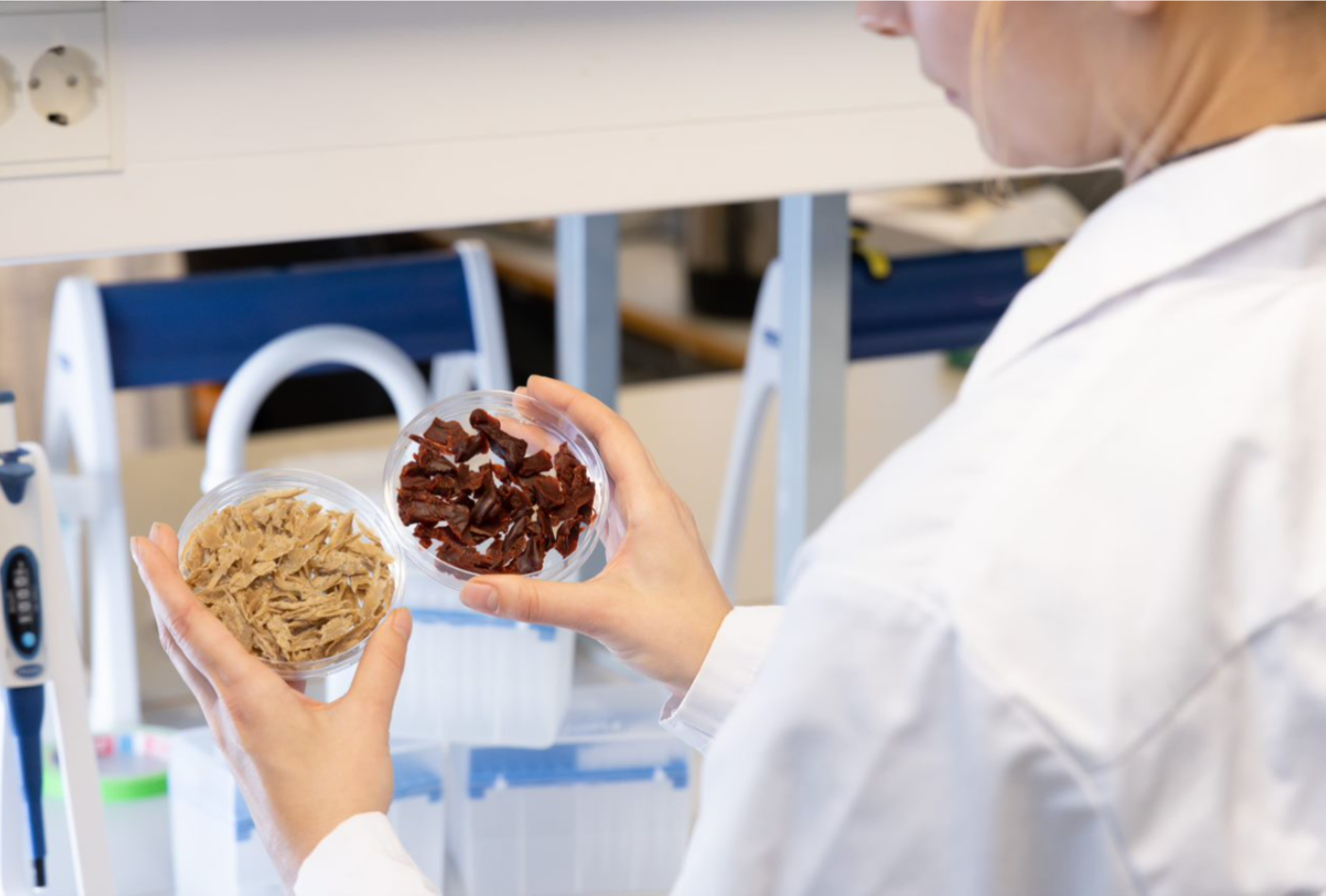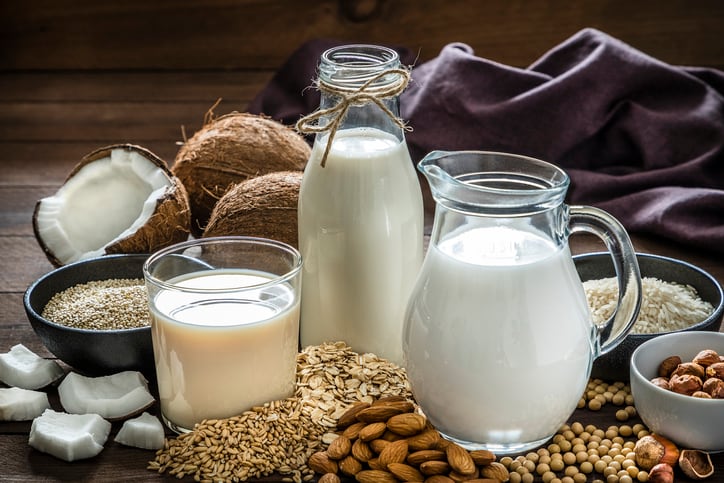The figures from Pitchbook, released by international non-profit The Good Food Institute (GFI), revealed global investment in sustainable proteins decelerated last year, from the record-breaking €4.7 billion ($5.1 billion) in 2021 to €2.7 billion ($2.9 billion) in 2022.
The GFI said the figures mirror the marked decline in wider venture capital investment. The global venture ecosystem experienced a sharp pullback in 2022, with funding dropping by 35% from 2021, according to the State of Venture report released in January by CB Insights.
The GFI stressed the data revealed sustainable protein companies across Europe raised €579 million ($622 million) last year – still nearly 24% more than in 2021 – despite strong global economic headwinds. The data also show the continent’s plant-based sector saw a 15% increase in venture capital deals, raising €284 million ($305 million) in 2022.
Other highlights among the figures include:
- France and Spain both saw investments increase across all sustainable protein categories. French companies raised €168 million ($180 million) – over 11 times more than last year. Spanish companies attracted €42 million ($46 million) – a 58% increase from 2021.
- Investments in the UK’s cultivated meat industry increased almost fourfold, with companies raising €68 million ($74 million) in 2022.
- Scandinavia is fast becoming a fermentation powerhouse, with investment in Swedish companies more than tripling to €29 million ($32 million) and funds raised by Finnish companies more than doubling to €23 million ($25 million).
Carlotte Lucas, senior corporate engagement manager at the Good Food Institute Europe, said: “It’s great to see such strong figures across Europe’s sustainable protein sectors. But we need to see this against a backdrop of global deceleration, demonstrating clearly that we can’t rely on private investment alone to build a more sustainable food system, and governments need to step up.
“Right now, sustainable proteins are where solar panels were in the 1990s. They exist, and they’re available for eco-conscious consumers who are willing to pay a premium – but they need investment to improve quality and bring down prices.
“With the EU preparing to invest heavily in cleantech and biomanufacturing [via the European Commission’s new European Sovereignty Fund], now is the perfect opportunity to fund the research needed to keep Europe competitive and create future-proof jobs.”
She further cited US President Joe Biden who recently signed an executive order directing the US Department of Agriculture to prepare a report "assessing how to use biotechnology and biomanufacturing for food and agriculture innovation, including by... cultivating alternative food sources".
Meat-free sales dip in UK
The GFI data follows reports that sales of meat alternatives in the UK fell this Veganuary, with initial data for the first three weeks of January showing a fall in shoppers in the meat-free category compared to the prior January.
More than a million fewer households bought meat-free products this January, compared to previous year, with only 13.7% of households buying one, revealed data from AHDB/Kantar. This compares to 96.4% of households buying meat, fish or poultry (MFP) in the first three weeks of the year.
Further research from IGD suggests 7% of shoppers started taking part in Veganuary at the start of January, though seven out of 10 failed to make it past the two-week mark. Of those who stopped, 40% said it was due to alternatives being too expensive, while a further 40% claimed they couldn’t find food or drink they enjoyed.
Decreased interest has meant that in the Veganuary period, there was a decrease in alternatives volume sales, both in meat and dairy, according to AHDB. This shows, despite new product development and heavy promotions from retailers, the taste and price of meat-free products are still the major barriers for shoppers, the group said.
It added the meat-free category remains a small part of the market, maintaining the 2% volume share it has seen over the last four years. This decline in shoppers means overall value and volume for meat-free has declined with volumes down 12.9% and value down 6.3%, compared to MFP which declined by 3.2% in volume but saw value growth of 8.3% due to price increases.
Despite declines when comparing to the year before, Veganuary provided a boost for meat-free products with a sales uplift of 36% in the last three weeks versus the average three weeks in 2022 (excluding Veganuary and Christmas).
In response to these figures, GFI’s Lucas said: “As the cost of living crisis continues to bite this winter, and as plant-based meat remains more expensive than conventional meat, it’s no surprise to see many consumers have been cutting down on these products.”
She added that the appetite for plant-based foods remains high in other parts of Europe. “Euromonitor data indicates an 8% increase in plant-based meat and seafood sales across western Europe – from $2.83 billion in 2021 to $3.07 billion last year. Meanwhile, a recent GFI Europe study found one in two Spaniards and Italians, 27% of French people and 41% of Germans are now eating plant-based meat on a monthly basis, and a quarter of German and Spanish consumers plan to increase their plant-based meat consumption in the next few years.
“However, these products will only take a significant portion of the global market when they can compete with conventional meat on taste, price, and convenience. Larger companies as well as startups need to continue to drive forward innovation in this area and push these foods closer to parity on these key metrics.
“But, with sustainable proteins currently being at the stage that solar power was in the 1990s, it is essential that governments invest in research and development for these foods to stand a chance of meeting their climate targets.”
According to a report by Boston Consulting Group, for example, plant-based proteins have the highest CO2e savings per dollar of invested capital of any sector. "But investment in sustainable foods is only a fraction of that committed to areas like renewable energy," complained Lucas.





